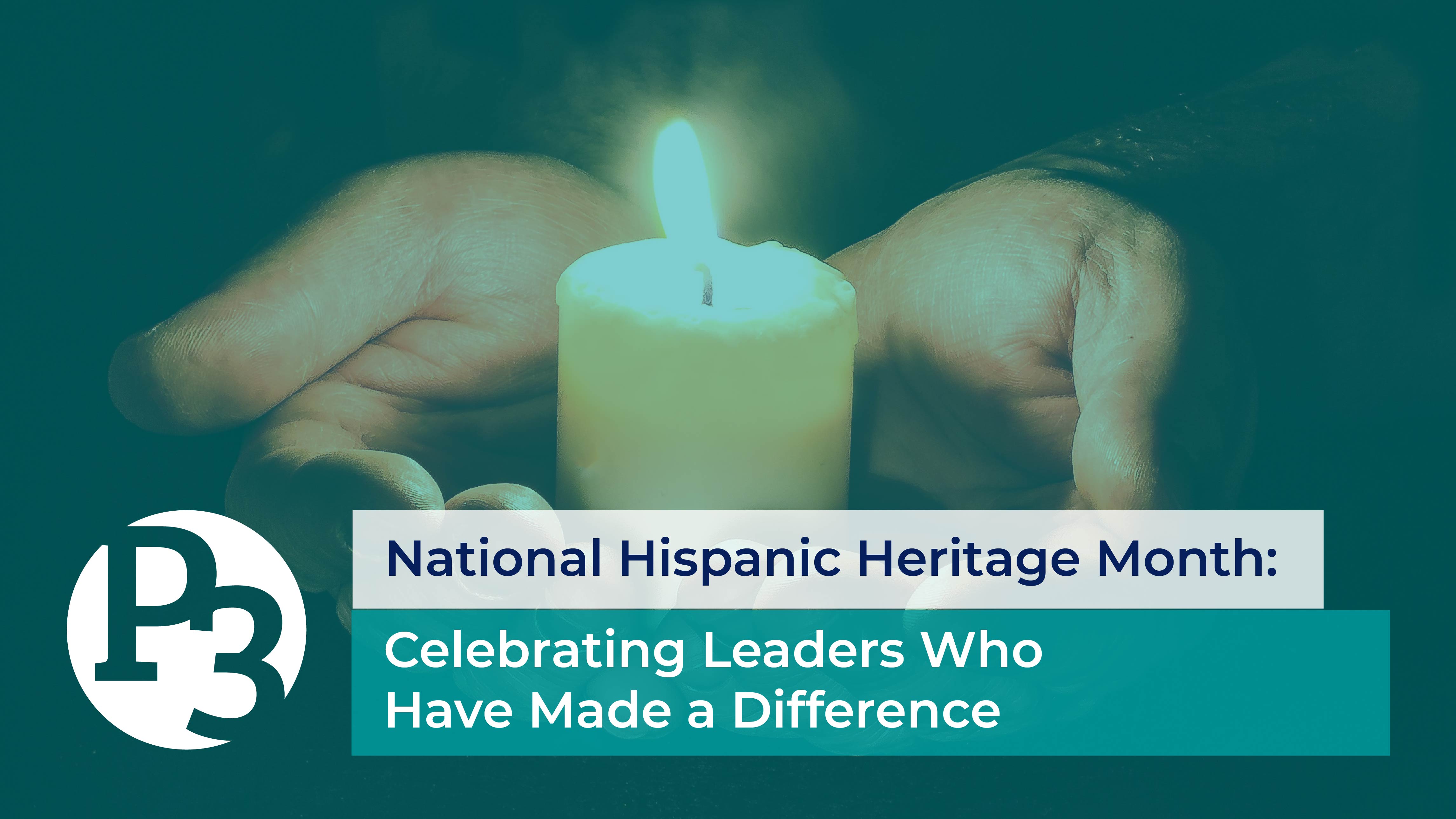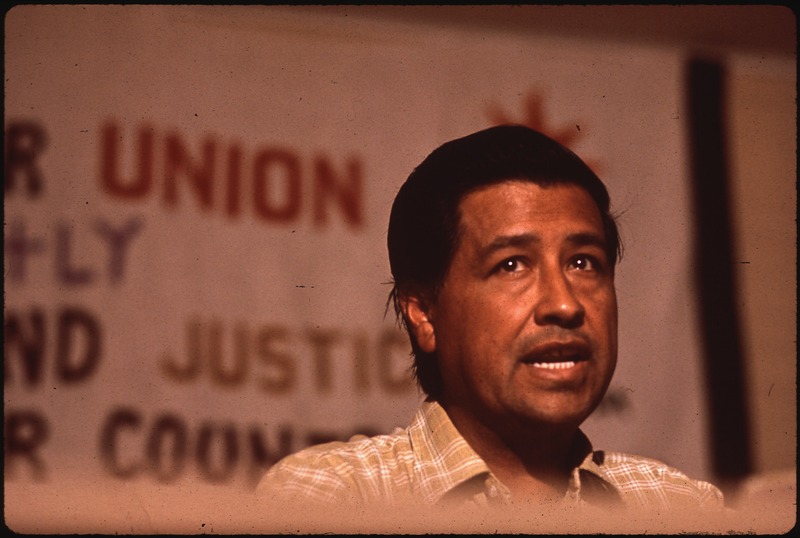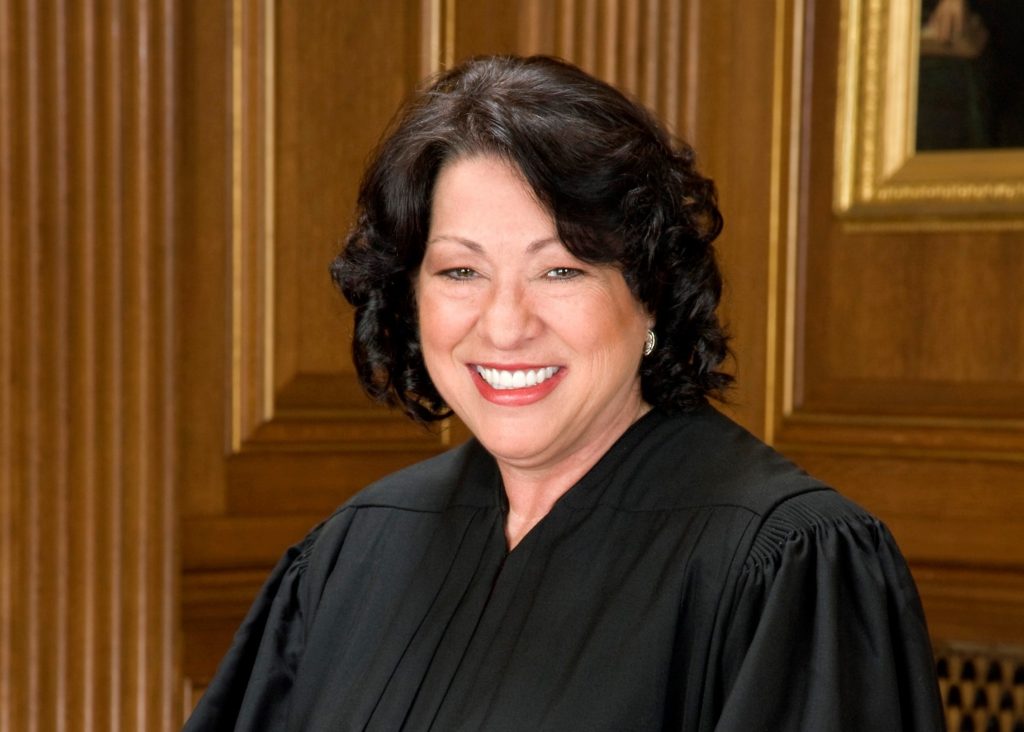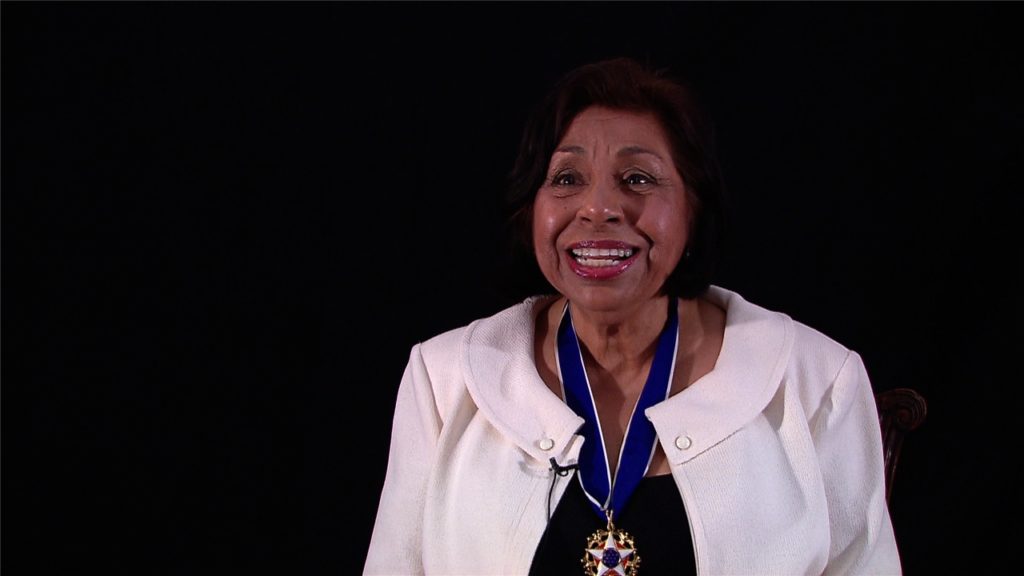
15 Oct National Hispanic Heritage Month: Celebrating Leaders Who Have Made a Difference
National Hispanic Heritage Month takes place from September 15 through October 15 as a way to commemorate and celebrate Hispanic and Latinx Americans and their culture and contributions within America. While this celebration was started as Hispanic Heritage Week in 1968 by President Lyndon Johnson, in 1988, President Ronald Reagan expanded it to cover the month it does today. This was approved into law in 1988 as a part of Public Law 100-402.
To celebrate the closing of 2020’s National Hispanic Heritage Month, we thought we’d take this opportunity to honor a few Hispanic or Latinx leaders that have made strides in the realm of public participation and made a difference in not just their communities, but in the United States as a whole.
Learn about the roles of Dolores Huerta and Cesar Chavez in migrant workers’ rights. Unravel Justice Sotomayor’s journey to the gavel of the United States Supreme Court. Discover the Mendez family’s role in the desegregation of public schools. Get up-to-date with the U.S. House of Representatives’ youngest woman representative, Alexandria Ocasio-Cortez.
This is by no means a comprehensive list of influential Hispanic and Latinx leaders, nor is this a complete representation of the listed leaders’ contributions and accomplishments. While this post provides basic highlights of some of their work, this is not an exhaustive biography and we recommend further looking into each leader’s work achievements for more information.
Source:
- Library of Congress – National Hispanic Heritage Month
Dolores Huerta

Dolores Huerta was born in 1930 in northern New Mexico to Juan Fernández and Alicia Chávez, who immigrated from Mexico. Her parents divorced when she was three years old, and she moved with her mother and two brothers to California, while her father stayed in New Mexico and went on to win a seat in the state legislature in 1938.
Her father worked as a farmworker and a miner previously and was passionate about union organizing and activism. Her mother owned and operated a restaurant and hotel and offered affordable or free rooms to low-income individuals and farmworkers that were in need. Huerta attributes her feminist attitude and desire to advocate for farm and migrant workers to her mother.
In 1955, Dolores Huerta co-founded the Stockton, California chapter of the Community Service Organization (CSO) with Fred Ross. This organization worked to provide economic improvements for migrant workers. While in this role, Huerta faced gender and ethnic discrimination and criticism as she held a position that was typically reserved for white men.
Through the CSO, Huerta met Cesar Chavez and the two co-founded the National Farm Workers’ Association (later changed to the United Farm Workers’ Organizing Committee [UFWOC]) after the CSO denied the request to organize farmworkers. Until 2018, Huerta was the only woman to sit on the board of this organization.
Huerta has also been an influential lobbyist, advocating for improvements for the lives of farmworkers throughout her career. She was influential in the implementation of the following laws and changes:
- The removal of citizenship requirements for public assistance in 1961, ensuring legal residents of the U.S. could access pension and other assistance programs
- A 1960 bill to allow California drivers to vote or take the driver’s license exam in Spanish
- The end of the Bracero Program in 1962
- The extension of the Aid to Families with Dependent Children (AFDC) to include Californian farmworkers in 1963
In 1966, Huerta and Chavez directed the national boycott in the Delano Grape Strike, advocating for rights for consumers and farmworkers. This led to a three-year bargaining agreement from the California grape industry in 1970. In 1973, she led another consumer boycott in the industry. This resulted in the 1975 California Agricultural Labor Relations Act, recognizing rights of California farmworkers to form unions and bargain for better wages.
Huerta founded the Dolores Huerta Foundation in 2002 using grant money from the Puffin/Nation Prize for Creative Citizenship. Her foundation works to provide resources and training to low-income families and communities. The Dolores Huerta Foundation also organizes campaigns to encourage people to vote, including youth.
Dolores Huerta’s amazing work has not gone unnoticed. Huerta has received numerous awards and recognitions, including the Eleanor Roosevelt Award for Human Rights in 1998 from President Bill Clinton and the Presidential Medal of Freedom in 2012 from President Barack Obama.
Huerta has done monumental work throughout her career to advocate for migrant and farmworkers and work to organize and empower Hispanic and Latinx communities in America. To this day, Huerta’s motto stands as a cry for justice and equality: “Si se puede!” or “Yes, it can be done!”
Sources:
- Dolores Huerta Foundation for Community Organizing
- Biography.com – Dolores Huerta Biography
- Dolores Huerta by Debra Michals
César Chávez

César Chávez was born in 1927 as a first-generation American outside Yuma, Arizona. After losing their farm in the Great Depression, Chávez’s family became migrant farmworkers where Chávez experienced first-hand the injustices facing migrant workers of the time.
In 1952, Chávez was recruited and trained by Fred Ross, who was a leading community organizer for the Community Service Organization (CSO), a Latino civil rights group. During his 10 years with the CSO, Chávez organized voter registration and get-out-the-vote drives. This experience in community organizing helped him throughout the rest of his life’s efforts.
Chávez continued to be passionate about migrant workers’ rights. In 1962, he decided to resign from the CSO and co-founded the National Farm Workers Association with Dolores Huerta, who he met while working for the CSO. The National Farm Workers Association later became the United Farm Workers (UFW) of America.
Throughout all his efforts, Chávez insisted upon nonviolence. One of his most successful endeavors was the grape strike and consumer boycott in 1965, which he directed alongside Dolores Huerta. Millions of Americans across the nation rallied and forced the growers to accept the UFW union contracts. This became the first farmers’ union in American history. The movement also led to the governor of California to pass the Agricultural Labor Relations Act of 1975, the first and still only legislation protecting farmworkers’ right to organize and negotiate with their employers.
Chávez’s life’s work also includes establishing affordable housing for migrant and low-income workers and seniors, fasting to raise awareness of issues such as pesticide poisoning of farmworkers and their children, and establishing two educational Spanish-language radio stations which exist as a 13-station entity today.
Source:
Justice Sonia Sotomayor

Sonia Sotomayor was born in 1954 to Juan and Celina Baez Sotomayor, who were both of Puerto Rican descent. They lived in the South Bronx of New York City on a very modest income. After her father passed away, Sotomayor’s mother pushed her children to become fluent in English and attend higher education.
Sotomayor fulfilled her mother’s wish and attended Princeton University in 1972. In 1976, she graduated summa cum laude and was awarded the Pyne Prize, the highest academic award given to Princeton undergraduates. Sotomayor transitioned immediately to Yale Law School, where she became the editor of the Yale Law Journal. She received her J.D. in 1979 and passed the bar in 1980.
In her early years as a lawyer, Sotomayor specialized in intellectual property litigation. Outside of work, she served on the board of the Puerto Rican Legal Defense and Education Fund, the New York City Campaign Finance Board, and the State of New York Mortgage Agency.
Her pro bono work for these organizations caught the attention of political leaders, leading to President George H.W. Bush nominating her as a U.S. District Court judge for the Southern District of NYC. She was unanimously confirmed to the position by Senate in 1992 and was at the time the youngest judge ever appointed. Later, in 1997, Sotomayor was nominated for the U.S. Second Circuit Court of Appeals by President Bill Clinton and confirmed by the Senate.
In August 2009, Sonia Sotomayor became the first Latina Supreme Court Justice in the history of the United States. As a justice, Sotomayor has played a key role in a number of landmark cases that have faced the Supreme Court. Listed below are a few notable cases:
- In 2015, Sotomayor was part of the majority that upheld a component of the Affordable Care Act that provided subsidies to Americans who purchased their healthcare through both state and federally operated exchanges. (King v. Burwell)
- In 2015, Sotomayor was also in the majority that made same sex marriage legal in all 50 states. (Obergefell v. Hodges)
- In 2016, the Supreme Court ruled that police officers could enter evidence found during illegal stops into court evidence so long as they conducted the search after learning the defendant had an outstanding arrest warrant. Sotomayor disagreed with this ruling, and wrote a dissent, stating “The mere existence of a warrant not only gives an officer legal cause to arrest and search a person, it also forgives an officer who, with no knowledge of the warrant at all, unlawfully stops that person on a whim or hunch.” (Utah v. Strieff)
Source:
- Biography.com Sonia Sotomayor Biography
The Mendez Family

While most know of the landmark Supreme Court Case Brown v. Board of Education decided in 1954, few know of the important case that set the stage for school integration in 1946: Mendez v. Westminster.
This landmark case began with nine-year-old Sylvia Mendez, whose family was of Mexican descent. In 1944, Sylvia’s family moved to Westminster, California. When Gonzalo and Felicitas Mendez tried to enroll Sylvia in the local school, they were turned away.
At the time, segregation of Mexican Americans was not written into law but widely practiced throughout California. Mexican American children were sent to separate schools that had fewer resources and the children were taught how to become field workers or house cleaners rather than academic or language skills.
Gonzalo Mendez argued that not just his children, but all Mexican American children should have access to a quality education and filed a lawsuit against the school district, which his attorney viewed as a chance to argue against all segregation of students of color in California. Federal District Judge Paul McCormick ruled that the segregation of Mexican American students was not supported by California law and violated the 14th amendment.
The school district appealed the decision, bringing the case to the attention of the NAACP who saw it as an opportunity to argue against segregation nationwide. Thurgood Marshall argued the case with points drawn up by his assistant special counsel Robert Carter, including points on social justice – that segregation inherently inhibited students’ ability to learn and therefore created inequalities.
The Ninth Circuit Court of Appeals ruled in favor of Mendez on the grounds that Mexican American segregation in schools was not supported by California law, but not on the grounds that it violated the 14th amendment. While this could have led to state legislation that targeted Mexican Americans, instead, California Governor Earl Warren passed a law that prohibited any kind of segregation in Californian schools. Earl Warren would later hear the Brown v. Board of Education case as Chief Justice of the U.S. Supreme Court.
Nine-year-old Sylvia Mendez finished school, obtained degrees in nursing, and later became Assistant Nursing Director of the Pediatric Pavilion at the Los Angeles University of Southern California Medical Center. Now in retirement, she is an advocate for student retention and educates students about the importance of the Mendez case.
In 2011, President Barack Obama awarded Mendez with the Presidential Medal of Freedom. “When I got it I couldn’t stop crying, because I was thinking finally my mother and father are getting the thanks they deserve,” Sylvia said in a 2016 interview with the Los Angeles Times. “This is theirs, not mine. They stood up against the establishment.”
Sources:
- The Mendez Family Fought School Segregation 8 Years Before Brown v. Board of Ed. by David Roos
- Administrative Office of the U.S. Courts
Congresswoman Alexandria Ocasio-Cortez

Alexandria Ocasio-Cortez, otherwise known as AOC, was born in 1989 in the Bronx to a family of Puerto Rican descent. She grew up in New York and attended Boston University after high school. During her time in college, her father passed away from lung cancer. After she graduated, she moved back home and began bartending and waitressing to help support her mother – all the while developing an understanding of and commitment to working-class populations in America.
In 2016, Alexandria Ocasio-Cortez worked on the Bernie Sanders campaign and developed her skills in activism and organizing an election. This helped spark her career in politics. After taking a trip to North Dakota to participate in protests against the Dakota Access oil pipeline, she decided to run for office.
In June of 2018, Ocasio-Cortez won the Democratic primary nomination for the 14th New York Congressional District against 10-year incumbent Joe Crowley, which was considered to be a major upset. Later that year, she defeated Anthony Pappas in the general election. She assumed office on January 3, 2019, becoming the youngest woman ever to be elected to the House of Representatives.
Alexandria Ocasio-Cortez is a proclaimed Democratic Socialist known for a progressive platform that works to support working-class Americans, the environment, and more. She supports Medicare for All, the Green New Deal, higher tax brackets for the considerably wealthy, creating an easier pathway for immigrants to achieve citizenship, and the abolition of ICE.
She is a member of multiple House committees: the House Committee on Oversight and Reform and the House Committee on Financial Services. She is also a member of multiple caucuses (a group of Congress members interested in similar legislation objectives), including the Congressional Hispanic Caucus, the Democratic Women’s Caucus, and more.
Alexandria-Ocasio Cortez continues to serve the people of the 14th Congressional District of New York and advocates for equality within our American political system through her support of various policies. Her work strives to support social, racial, economic, and environmental justice.
Sources:
- The U.S. House of Representatives – Congresswoman Alexandria Ocasio-Cortez
- History, Art & Archives – United States House of Representatives
- A 28-year-old Democratic Socialist just ousted a powerful, 10-term congressman in New York by Gregory Krieg
- The Truth about Alexandria Ocasio-Cortez by Eliza Relman
Without the dedicated work and contributions of the leaders in this post, in addition to countless other Hispanic and Latinx leaders throughout history, we would not be where we are today. Even as National Hispanic Heritage Month comes to an end, we will continue to honor, respect, and commemorate all those in the Hispanic community who have made a difference in the lives of their fellow Americans.
About the Authors:
Deirdre Scanlon is the Communications Engagement Specialist for Public Participation Partners (P3). When not dreaming up new ways to equitably engage the public, you can find Deirdre tending to her houseplants or walking the trails of Raleigh, NC.
Katie Maynard started her journey with Public Participation Partners (P3) as a Community Engagement Assistant in January 2020. When not assisting with public involvement, Katie enjoys reading, traveling to the beach, and spending time with her pets.
Works Cited
- Administrative Office of the U.S. Courts. (2011). Background – Mendez v. Westminster Re-Enactment. United States Courts. Retrieved October 12, 2020, from https://www.uscourts.gov/educational-resources/educational-activities/background-mendez-v-westminster-re-enactment
- Biography. (2019, July 26). Representative Alexandria Ocasio-Cortez. Retrieved October 12, 2020, from https://ocasio-cortez.house.gov/about/biography
- Cesar Chavez Foundation. (2011). About Cesar Chavez – Cesar Chavez Foundation. Chavezfoundation.Org. Retrieved October 12, 2020, from https://chavezfoundation.org/about-cesar-chavez/#1517518205713-14295abf-a348
- Dolores Huerta. (n.d.) Dolores Huerta Foundation for Community Organizing. Retrieved October 12, 2020, from https://doloreshuerta.org/dolores-huerta/
- Dolores Huerta Biography. (2018, March 5). Biography. Retrieved October 12, 2020, from https://www.biography.com/activist/dolores-huerta
- History, Art & Archives, U.S. House of Representatives. (n.d.). History.House.Gov. Retrieved October 12, 2020, from https://history.house.gov/Institution/Firsts-Milestones/Election/#:~:text=Youngest%20person%20ever%20to%20be
- Krieg, G. (2018, June 27). A 28-year-old Democratic Socialist just ousted a powerful, 10-term congressman in New York. CNN. Retrieved October 12, 2020, from https://www.cnn.com/2018/06/26/politics/alexandria-ocasio-cortez-joe-crowley-new-york-14-primary/index.html
- Michals, D. (2000). Dolores Huerta. National Women’s History Museum. Retrieved October 12, 2020, from https://www.womenshistory.org/education-resources/biographies/dolores-huerta
- National Hispanic Heritage Month (n.d.) Library of Congress. Retrieved October 12, 2020, from https://www.hispanicheritagemonth.gov/about/
- Relman, E. (2019, January 6). The Truth About Alexandria Ocasio-Cortex: The inside story of how, in just one year, Sandy the bartender became a lawmaker who triggers both parties. Insider. Retrieved October 12, 2020, from https://www.insider.com/alexandria-ocasio-cortez-biography-2019-1
- Roos, D. (2019, September 18). The Mendez Family Fought School Segregation 8 Years Before Brown v. Board of Ed. History. Retrieved October 12, 2020, from https://www.history.com/news/mendez-school-segregation-mexican-american
- Sonia Sotomayor Biography. (2016, June 23). Biography. Retrieved October 12, 2020, from https://www.biography.com/law-figure/sonia-sotomayor


Sorry, the comment form is closed at this time.